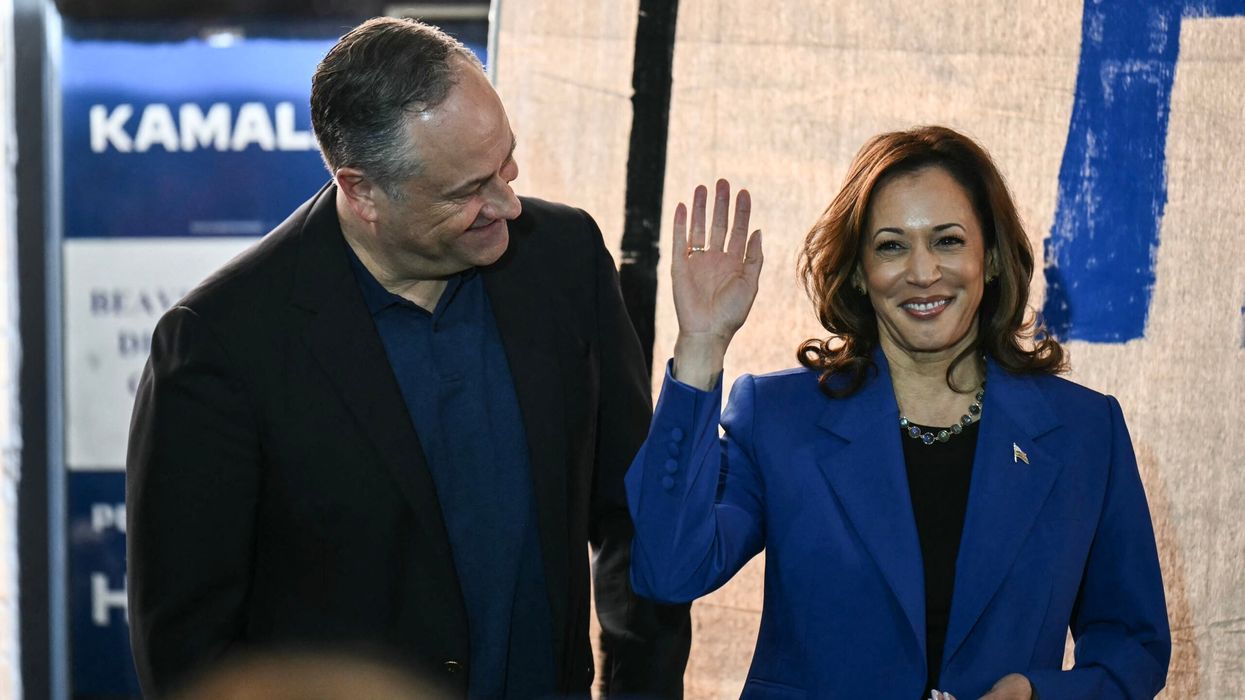DOUGLAS EMHOFF, husband of Kamala Harris, shared the story of how they met on a blind date in 2013 as he rallied support for his wife, who is vying to become the next president of the United States.
Speaking at the Democratic National Convention on Tuesday (20) night, Emhoff recounted the deeply personal tale of their first encounter.
Emhoff, who is the Second Gentleman of the United States, described how he was working as a lawyer and had just gone through a divorce when an unexpected opportunity arose – a blind date with Kamala Harris.
“In 2013, I walked into a contentious client meeting. We worked through the issue and, by the end of the meeting, the now happy client offered to set me up on a blind date – which is how I ended up with Kamala Harris's phone number,” he said.
Reflecting on the moment, Emhoff, 59, recalled how he left a long, awkward voicemail – one that Harris, also 59, now playfully revisits each year on their anniversary.
“For generations, people have debated when to call the person you're being set up with, and never in history has anyone suggested 8:30 am. And yet, that's when I dialled,” he said.
“I got Kamala's voicemail, and I just started rambling. I remember trying to grab the words out of the air and put them back in my mouth. After what seemed like far too many minutes, I hung up. By the way, Kamala saved that voicemail, and she makes me listen to it every anniversary. That message wasn't the only unusual thing about that day,” he said, drawing laughs and cheers from the Democratic Party supporters.
“Kamala, who normally would have been working hard at the office, just happened to be waiting at her apartment for a contractor to do some work on her kitchen. I was eating at my desk, which was not a regular occurrence for a busy lawyer like me who appreciates a good business lunch,” Emhoff said.
“That's when she called me back. We talked for an hour. We laughed. You know that laugh. I love that laugh. Maybe that counted as our first date, Or, maybe it was that Saturday, when I picked her up and told her "Buckle up-I'm a really bad driver," he said.
He called his wife a “joyful warrior” and a loving co-parent to his kids. Emhoff, a Los Angeles attorney who took leave from his firm when Harris became vice-president, has two now-grown children from his first marriage.
He said Harris, who has no biological children of her own, has put their family first, no matter how demanding her job gets.
“Those of you who belong to blended families know things can be a little complicated. But as soon as they started calling her ‘Momala,' I knew we were going to be OK,” said Emhoff.
"It's doing for her country what she has always done for the people she loves. Her passion will benefit all of us when she's our president."
This Thursday (22), as Harris accepts the party's nomination for president, will be their 10th wedding anniversary, he noted, adding that means he's "about to hear the most embarrassing voicemail of my life once again".
"Kamala was exactly the right person for me at an important moment in my life. And at this moment in our nation's history, she is exactly the right president," he said.
Emhoff, who was raised in a Jewish family in New Jersey, said that Harris comes to synagogue with him on holidays and he goes to church with her on other occasions.
Harris, who is of Indian and African heritage, earlier this month formally secured the Democratic presidential nomination, becoming the first Indian-American to be nominated as a presidential candidate of a major political party.
Harris also became the first-ever woman of colour to be on the top of a presidential ticket of a major American political party. She is also the first ever Indian-American to be nominated as presidential candidate of either the Republican or the Democratic party.
She will formally accept the Democratic party's presidential nomination on Thursday to take on Republican rival Donald Trump, 78, in the November 5 election. (PTI)




